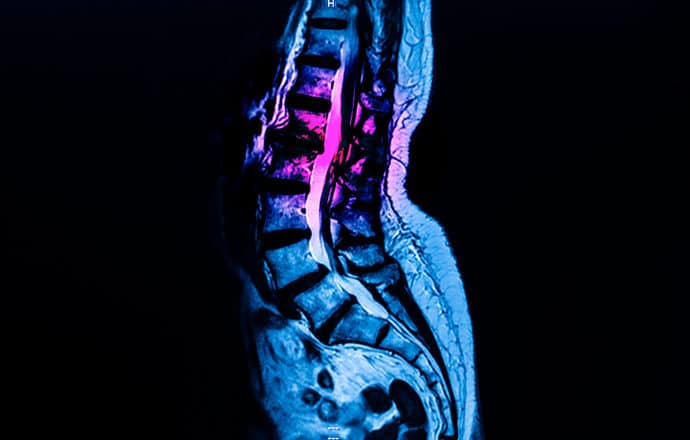In medical terms, a narrowing of any passage in the body is referred to as stenosis. This can occur in the spine when either the spinal cord narrows or the bone passage where spinal nerves sit narrows. While this can lead to pain and discomfort or prevent normal activities, there is treatment available. Spinal stenosis surgery and other methods can be used to prevent worsening of the condition and reverse some of the impacts. However, if spinal stenosis is not addressed, it can have chronic impacts on the body. Read on to understand more about spinal stenosis and the importance of seeking treatment if you suffer from this condition.
Overview of Spinal Stenosis
In the majority of cases, spinal stenosis occurs as a result of general wear and tear on the body, though a handful of people are born with the condition. Usually, spinal stenosis becomes more prominent with age and activities that can damage the spine, such as sports. The condition can actually be found at two separate parts of the spine- the lower back and the neck.
Lumbar spinal stenosis occurs when the roots of the spinal cord, which are located in the lower back, become compressed. This can cause feelings of weakness, numbness, tingling, or radiating pain in the lower back, often moving to the buttocks and legs. As this condition develops, you may also notice pain while walking, and many people find it eventually debilitating to walk even a few steps.
When spinal stenosis occurs in the neck, or cervical spine, the spinal cord is constricted at this site. This can be very serious as cervical stenosis can lead to extreme weakness that becomes paralysis. In rare cases, stenosis can also develop in the middle of the back, known as thoracic stenosis.
The cause of spinal stenosis can be a traumatic event, like a car crash or fall, or other spinal conditions that lead to the narrowing. This includes herniated discs, bone overgrowth, thickening ligaments, spinal cord injuries, or even tumors.
Risks of Untreated Spinal Stenosis
Not only does spinal stenosis have a number of unpleasant symptoms, but they will also likely worsen over time without treatment and can lead to more serious issues, like nerve damage and paralysis. A case of stenosis that is caught early and mild can be monitored and improved with non-invasive treatments, while more advanced cases will likely need spinal stenosis surgery to recover. Below are just some of the risks of avoiding treatment.
Constant Pain and Discomfort: Even if your condition begins with only mild or intermittent pain, it will likely become worse over time, occurring more often and at worse levels. It is also likely to spread from a concentrated area of the body to other surrounding body parts, making it harder to live with.
Decreased Level of Activity: As you begin to experience more pain, you will also be less able to participate in activities you do now. Some people’s pain is worsened by movement, leading to a sedentary lifestyle in reaction to the pain. Things like riding a bicycle, swimming, walking your dogs, or even shopping are off-limits for people who allow spinal stenosis to go untreated.
Disability: In severe cases of spinal stenosis, a patient can end up permanently disabled. This may be through paralysis, or weakness so severe that it is impossible to stand and move as normal. It is not unreasonable to expect severe stenosis to lead to a person being bound to a wheelchair.
Loss of Bladder and Bowel Control: When nerves become damaged to weak, some of the nerves that may be impacted are those that control your bladder and bowels. If this damage is severe enough, you may begin to experience incontinence as you can no longer control these nerves. This can usually be repaired with spinal stenosis surgery, but you probably want to avoid it becoming a problem in the first place.
Treating Spinal Stenosis
The first thing you should do is to find out what kind of doctors help with spinal issues. At AICA Orthopedics, we do our best to address spinal stenosis early and often, using non-invasive techniques where possible. Chiropractic care and neurology are used in conjunction to determine the exact cause of your pain and help relieve it as you recover. When spinal stenosis surgery or other interventional spinal care is necessary, AICA Orthopedics also has doctors who can perform these operations while working with your holistic team to develop recovery protocols. If you are experiencing any symptoms of spinal stenosis, it is best to seek care as soon as possible to give you the best chance of full recovery. Call us today to schedule your first consultation!





